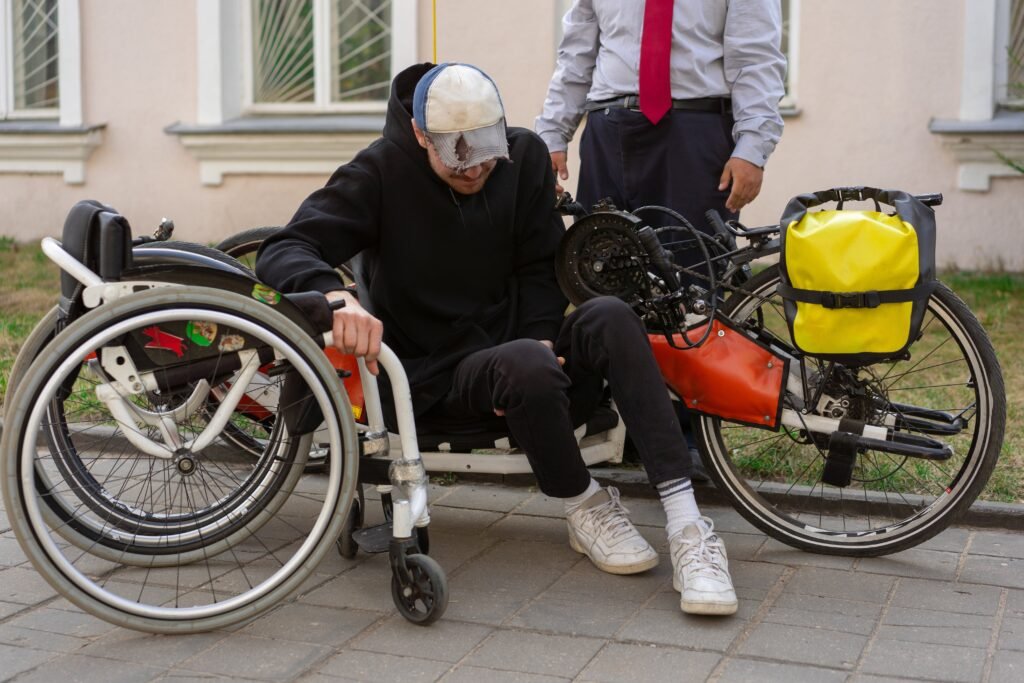Over the past decade, the landscape of dating has experienced a remarkable shift in the way we perceive and engage with gender roles. From traditional expectations to a more inclusive and equal approach, the evolution of gender roles in dating has been a fascinating journey. In this article, we will explore this transformation and delve into the significant changes that have shaped the way we navigate relationships in the modern world. So, get ready to embark on a journey of introspection and discovery as we unravel the intriguing dynamics that have reshaped the dating world.

Technological Influences
Dating Apps and Online Platforms
In the past decade, technological advancements have revolutionized the dating landscape. Dating apps and online platforms have become increasingly popular, providing individuals with convenient and accessible ways to meet potential partners. With just a swipe or a click, you can now connect with people from diverse backgrounds and interests. These platforms have opened up a whole new world of possibilities when it comes to dating, allowing you to interact with individuals you may have never crossed paths with in your everyday life.
Virtual Dating and Long-Distance Relationships
Another notable technological influence on modern dating is the rise of virtual dating and long-distance relationships. With the advancements in video calling and messaging platforms, it has become easier to maintain connections with partners even when physical distance separates you. Virtual dates have become a common occurrence, enabling you to get to know each other better and create meaningful connections despite being physically apart. This has expanded the dating pool and allowed for the possibility of genuine and lasting relationships, regardless of geographical boundaries.
Changing Gender Expectations
Breaking Stereotypical Roles
In the past decade, there has been a significant shift in societal expectations and perceptions of gender roles in dating. Traditional gender stereotypes that dictated the roles and behaviors expected of men and women have gradually been dismantled. Men are no longer solely responsible for initiating dates or pursuing romantic interests, while women are no longer expected to adhere to passive roles. The breaking of these stereotypical roles has provided more freedom and agency for individuals to express their desires and preferences in relationships.
Equal Contribution in Planning and Expenses
Alongside the breaking of stereotypical roles, there has been a growing emphasis on equal contribution in planning and expenses within dating. In the past, it was often assumed that men would take charge of organizing dates and footing the bill. However, in recent years, there has been a shift toward shared responsibility and mutual investment. Today, it is increasingly common for both partners to take turns planning dates and contributing financially. This development has fostered a sense of equality and partnership within relationships, challenging societal norms that placed the burden solely on one gender.
Gender Fluidity and LGBTQ+ Inclusion
Acceptance and Visibility
One of the most significant changes in dating over the past decade has been the increased acceptance and visibility of gender fluidity and LGBTQ+ individuals. Society has become more inclusive and understanding of diverse gender identities and sexual orientations, leading to a greater acknowledgment and appreciation for non-binary and queer individuals in the dating realm. This shift has created safer spaces for people to express their authentic selves and has broadened the range of dating options available to individuals of all genders and sexualities.
Exploration of Non-Traditional Roles
Alongside acceptance and visibility, there has been an exploration of non-traditional roles within relationships. People are no longer constrained by rigid gender expectations and are free to explore various dynamics and power structures within their partnerships. This has allowed for a deeper understanding and appreciation of the complexity of human relationships, challenging preconceived notions of what constitutes a “traditional” or “normal” relationship. As a result, the dating landscape has become more diverse and inclusive, embracing a broader spectrum of identities and relationship dynamics.
New Communication Norms
Embracing Direct Communication
Communication norms within dating have evolved significantly over the past decade. There has been a growing emphasis on direct and open communication, encouraging individuals to express their thoughts and feelings honestly and openly. Gone are the days of playing mind games or waiting for someone to make the first move. Nowadays, it is encouraged to clearly communicate your intentions, desires, and boundaries from the early stages of dating. This shift has fostered healthier and more authentic connections, allowing individuals to build relationships based on trust and understanding.
Consent and Boundaries
Another important aspect of new communication norms is the heightened focus on consent and boundaries. As society becomes more educated about the importance of consent, individuals are now encouraged to actively seek and respect consent at every stage of a relationship. The conversation surrounding consent has expanded beyond just the realm of sexual activity and now includes all aspects of physical and emotional intimacy. This shift has created a safer and more respectful dating culture, where the well-being and autonomy of each individual are prioritized.

Casual Dating and Hookup Culture
Shift in Traditional Norms
Casual dating and hookup culture have witnessed a significant shift in traditional norms over the past decade. Previously, casual encounters were often stigmatized and viewed as taboo. However, attitudes have changed, and this type of dating has gained wider acceptance. People are now more open to exploring casual relationships, recognizing that it can be a valid way to connect with others without the pressures and commitments of a long-term partnership. This shift has allowed individuals to embrace their own desires and preferences, free from societal judgment.
Heightened Focus on Consent
Alongside the cultural shift toward casual dating, there has been a heightened focus on consent within these contexts. Understanding and respecting boundaries has become an essential aspect of casual encounters. Clear communication about intentions and expectations is now more prevalent, ensuring that all parties involved are on the same page and comfortable with the level of intimacy they are engaging in. This increased focus on consent has promoted safer and more enjoyable experiences within casual dating and hookup culture.
Progressive Attitudes towards Sexuality
Sexual Liberation and Empowerment
Progressive attitudes towards sexuality have played a significant role in shaping modern dating. Over the past decade, there has been a growing emphasis on sexual liberation and empowerment. Individuals are encouraged to explore and embrace their own desires and preferences, free from societal judgment or shame. This shift has allowed for a more open and honest dialogue about sexual needs and boundaries within relationships. It has also contributed to a more sex-positive culture, where healthy and consensual sexual expression is celebrated and respected.
Decreasing Double Standards
Another notable change in attitudes towards sexuality is the decreasing double standards that have historically existed between men and women. The past decade has seen a greater push for gender equality in all aspects of life, including sexuality. Traditional norms that dictated different expectations for men and women have been challenged, leading to a more balanced and equitable approach to sexual agency and expression. This shift has fostered a greater understanding that there is no one-size-fits-all when it comes to sexual desires, allowing individuals to embrace their authentic selves without fear of judgment.

Feminism and Empowerment
Reclaiming Independence
Feminism has played a crucial role in shaping the evolution of dating in the past decade. The feminist movement has urged women to reclaim their independence and challenge societal expectations that confine them to prescribed gender roles. Women are now more empowered to pursue their own goals and aspirations, both within and outside of relationships. This newfound independence has led to a shift in power dynamics and has paved the way for more equitable and egalitarian partnerships, where both partners are valued for their individual strengths and contributions.
Challenging Gender Norms
In addition to reclaiming independence, feminism has been instrumental in challenging and dismantling traditional gender norms that have restricted both men and women in the dating realm. Gender expectations that dictated how men and women should behave or present themselves have been challenged, allowing for a greater sense of freedom and self-expression. Both men and women are now encouraged to embrace aspects of their personality that defy traditional gender roles, leading to more authentic and fulfilling connections based on shared values and compatibility.
Emphasis on Mutual Consent and Communication
Enforcing Boundaries
With the growing recognition of the importance of consent and communication, there has been an increased emphasis on enforcing boundaries within dating. In the past, boundaries were often overlooked or ignored, leading to instances of discomfort or harm. However, in the past decade, individuals have become more assertive in clearly communicating and enforcing their boundaries. This has created a culture of respect and accountability within relationships, where the emotional well-being and autonomy of each individual are valued and prioritized.
Prioritizing Emotional Well-being
Furthermore, there has been a shift in prioritizing emotional well-being within dating. Individuals now recognize that a healthy and fulfilling relationship extends beyond physical intimacy and shared interests. Emotional compatibility and mental well-being are given equal importance. This focus on emotional well-being has encouraged individuals to be more attuned to their own emotions and needs, as well as those of their partners. As a result, relationships have become more empathetic, supportive, and nurturing, fostering a sense of emotional security and resilience.
The Role of Media and Pop Culture
Impact of Movies and TV Shows
Media and pop culture play a significant role in shaping societal perceptions and expectations related to dating. Movies and TV shows have historically portrayed idealized and often unrealistic versions of romance and relationships. However, in the past decade, there has been an increased effort to challenge these outdated narratives and present more diverse and authentic depictions of love and dating. This shift has influenced societal attitudes, allowing individuals to question and challenge the romantic ideals imposed by the media, and instead seek genuine connections that align with their own values and desires.
Representation and Inclusive Storylines
Another significant influence of media and pop culture on dating has been the push for representation and inclusive storylines. The past decade has witnessed an increased demand for diverse and inclusive characters, reflecting the experiences of people from different backgrounds, genders, and sexual orientations. This representation has had a profound impact on fostering empathy and understanding, dismantling stereotypes, and promoting acceptance. By seeing diverse relationships portrayed on screen, individuals have been encouraged to embrace their own unique identities and desires, facilitating a more inclusive and accepting dating landscape.
Rejection of Traditional Dating Scripts
Moving Away from Gendered Expectations
Modern dating has seen a rejection of traditional dating scripts that revolve around rigid gender expectations. Historically, there were defined roles and expectations for men and women at each stage of the dating process. However, over the past decade, there has been a shift towards more flexible and individualized approaches to dating. Individuals are now free to define their own rules and expectations, without being confined by societal norms. This rejection of traditional dating scripts has allowed for more authentic connections and the freedom to create relationships based on compatibility and shared values, rather than conforming to prescribed gender roles.
Valuing Authenticity and Compatibility
A significant consequence of moving away from traditional dating scripts is the increased emphasis on valuing authenticity and compatibility. In the past, dating often revolved around societal expectations and external factors rather than genuine connections. However, the past decade has witnessed a greater focus on understanding oneself and seeking compatibility with potential partners. People are encouraged to prioritize their own happiness and well-being, seeking relationships where they can be their authentic selves. This shift has fostered more fulfilling and enduring connections, centered around shared values, goals, and mutual respect.
In conclusion, gender roles in dating have evolved significantly over the past decade. Technological influences, changing gender expectations, increased acceptance of gender fluidity and LGBTQ+ inclusion, new communication norms, casual dating and hookup culture, progressive attitudes towards sexuality, feminism and empowerment, emphasis on mutual consent and communication, the role of media and pop culture, and the rejection of traditional dating scripts have all contributed to a more inclusive and egalitarian dating landscape. These changes have enabled individuals to express their authentic selves, establish healthier and more equitable relationships, and seek genuine connections based on compatibility and shared values. As society continues to evolve, it is crucial to embrace and celebrate these positive changes, fostering a dating culture that prioritizes compassion, understanding, and respect.
Christopher Conway, the innovative mind behind “Love Blueprints,” is a seasoned relationship expert and author. His insightful guidance, drawn from years of experience and study, offers transformative strategies for modern love and dating. Christopher’s commitment to enhancing romantic connections has made “Love Blueprints” a go-to resource for those navigating the complexities of relationships.




